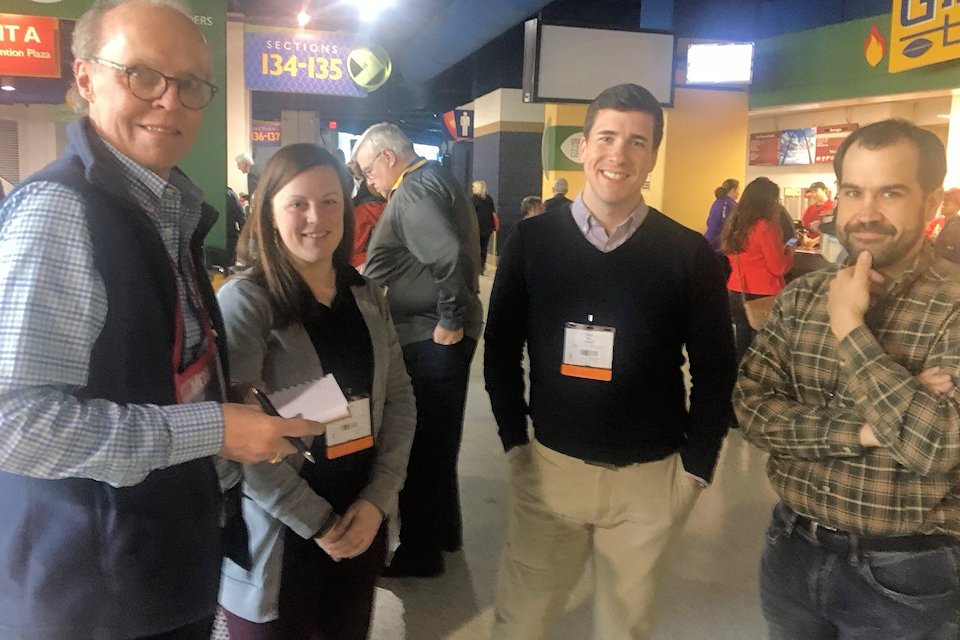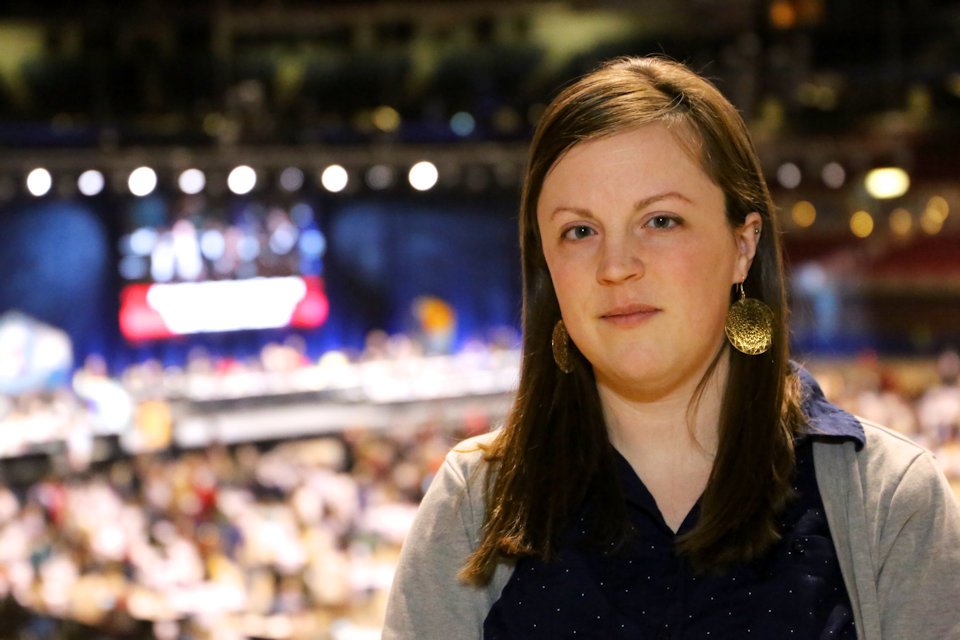While delegates work on the floor of the 2019 General Conference, some young adults watch on the sidelines and wonder what the future holds for The United Methodist Church.
JOHN E. HARNISH
Michigan Conference Communication
In the debate over Brexit, it seemed there was a clear divide between young and the old. The older Brits, perhaps longing for the good old days when Britannia ruled the world, voted in favor of leaving the European Union. But young adults who were looking to the future voted to stay connected with the countries of Europe.
Perhaps “Methxit” has some of the same dynamics at play. A majority of delegates to the 2019 General Conference reflect an older demography. But the future of the church rests in the hands of younger clergy and lay leaders. Some urgent, overlooked and unknown implications of this General Conference will have a major impact on young adults and, particularly, young clergy who will be leading the church into a new generation.
Michigan is represented at this Conference by several young adults who are here as delegates and observers, ordained clergy, laity and candidates for ordination. They are all seeking to catch a glimpse of what the future will hold for them and the church they are called to serve.
A small group of Michigan young adults reacted to the mood of the General Conference on this second day of business. Alex Plum, lay reserve delegate, said, “I’m speechless. I put a lot of hope into the fact that we were going to do something new—asking the bishops to lead, creating a commission and calling a special General Conference. But I don’t feel like anything new is happening.”
Alex is also concerned about the mission of the United Methodist church, particularly the mission to make disciples of Jesus Christ in the U.S. He understands the difference between the cultural contexts around the world, but he said, “If the Traditional Plan passes, we will no longer be relevant to the emerging mission field of youth and young adults in the USA.”

The Rev. Megan Crumm Walther, Associate Pastor at Clarkston United Methodist Church reacted to the current process on the floor of the General Conference. “It’s tedious. Some of the amendments are not well-articulated and business can bog down in procedural matters.” Her husband, the Rev. Joel Walther, pastor at Goodrich UMC, reflected the feelings of many observers by saying, “At this point, I just don’t know how to respond.” It is fair to say all three of these young adults would have preferred the “One Church Plan.”
Like many Michigan United Methodists, the Rev. Jeremy Wicks has been following the Special Session online. He is the pastor of Mosaic Church, a new church plant in Traverse City, Michigan. On Facebook, Wicks said, “While I have all sorts of anxiety around this, most of the world simply doesn’t care what we do. The world has moved on while we debate the value of some of our beloved siblings.”
Responding to the question, “What about your congregation?” Pastor Megan said, “Before this General Conference, my congregation was pretty much unaware of the position of the United Methodist Church. Now they know and prior to the conference they were excited about the possibility of more flexibility.”
In addition to young adults who are attending the conference as delegates and observers, there is a large group of seminary students from the various United Methodist seminaries, most of whom are here with their professors, to observe the work of the conference. Many of them are candidates for ordained ministry, who are looking forward to serving as elders and deacons in the church. They will be watching to see if the delegates sense their passion and are willing to base their decisions on the hopes and dreams of the leaders of the future.
One of Michigan’s own seminarians, Paul Reissmann, is watching GC2019 at home on the livestream. “My heart and spirit feel divided as someone in the process toward becoming a clergy member of The United Methodist Church,” Reissmann says. “Yet, my frustration is a small fraction of the suffering endured by my LGBTQ+ siblings in Christ.” Reissmann concludes, “The actions being taken in St. Louis feel like grace is being traded for austerity in a tradition that claims full accessibility of salvation to all people.” Then he wonders, “Witnessing this, can I still continue in the process toward ordination with integrity?”
Last Updated on September 20, 2022

